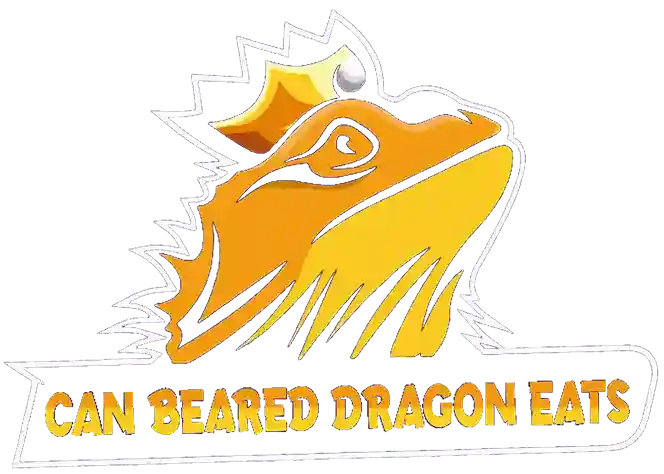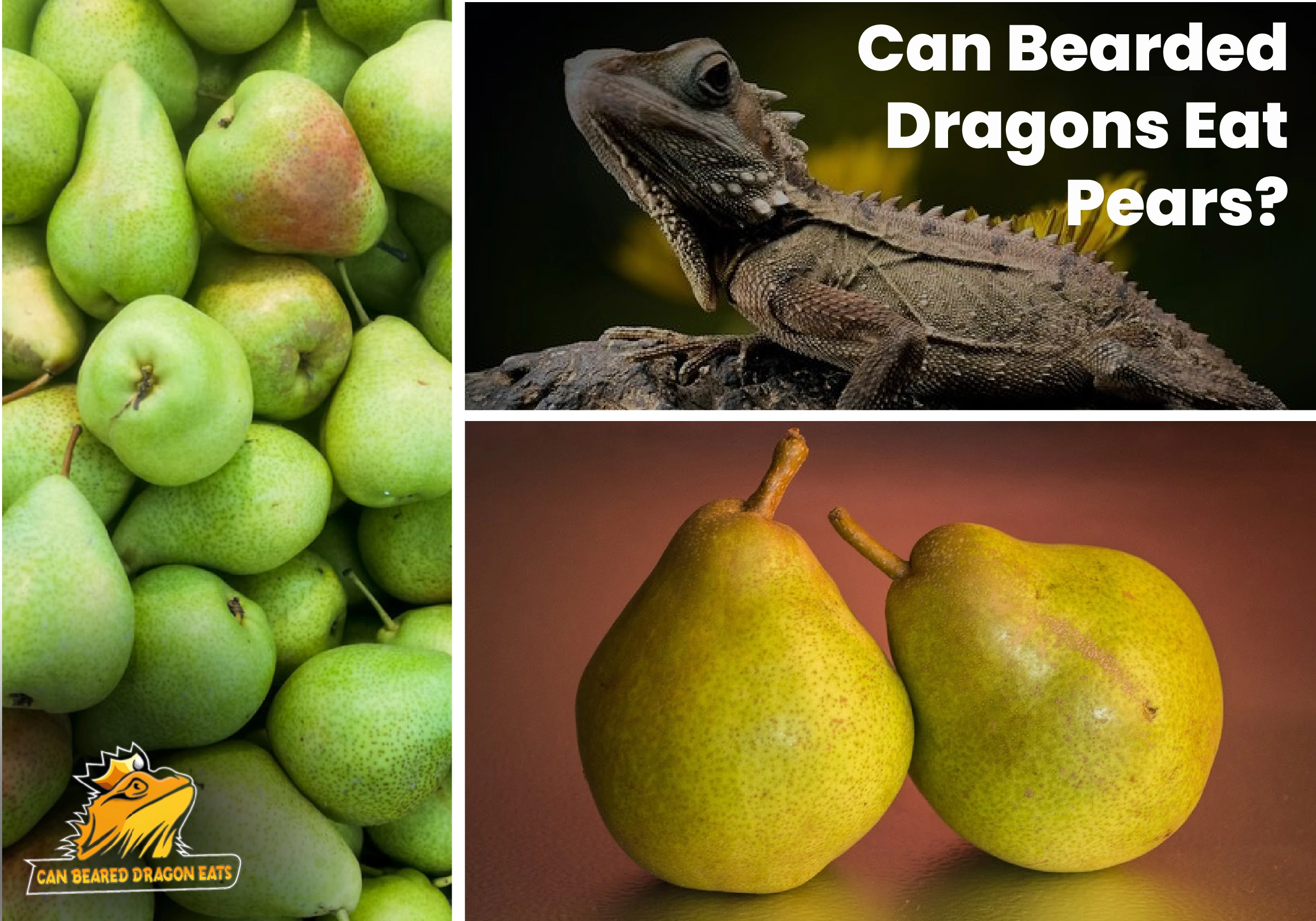Can bearded dragons eat pears? The answer is Yes, As an avid bearded dragon lover, I’ve always been fascinated by their dietary preferences and the range of foods that bring them joy. With their juicy sweetness and nutrient-packed goodness, Pears has piqued my curiosity. So, I delved into the depths of research to uncover the truth.
In this blog post, we’ll unravel the mystery together. Can these scaly companions munch on this delectable fruit, or is it a forbidden treat? They provide a burst of flavor and vital nutrients. So, go ahead and share a slice of pear with your dragon companion, watching their taste buds rejoice.
Let’s embark on this fruity adventure and reveal the truth about bearded dragons and pears!
Read more : Bearded Dragon can eat or other fruits.
Potential Benefits of Pears for Bearded Dragons
Bearded dragons, being omnivorous reptiles, require a balanced diet that includes a variety of insects, leafy greens, and occasional fruits. Among the fruit options, pears can offer several potential benefits to enhance the health and well-being of bearded dragons.
Here are the potential benefits of pears for bearded dragons.
Vitamin and Mineral Content
Pears are rich in essential vitamins and minerals that contribute to a bearded dragon’s overall health. They contain vitamin C, which supports the immune system and aids in wound healing, vitamin A for maintaining healthy skin and vision, and vitamin K for proper blood clotting. Pears also provide minerals like potassium, which assists in muscle function, and copper, which supports enzyme activity.
Digestive Health
Bearded dragons commonly face digestive issues, such as constipation, impaction, and intestinal blockages. The fiber content in pears promotes healthy digestion and helps prevent these problems. Fiber adds bulk to the stool, facilitating its passage through the digestive tract and preventing the accumulation of undigested matter.
Hydration Support
Maintaining proper hydration is crucial for bearded dragons, as they originate from arid regions. Pears have a high water content, aiding in hydration and preventing dehydration in these reptiles. This is especially beneficial during warmer months or when the humidity levels are low.
Antioxidant Properties
Pears are known for their antioxidant properties, primarily due to their flavonoid and polyphenol content. Antioxidants help neutralize harmful free radicals in the body, reducing the risk of cell damage and inflammation. By including pears in their diet, bearded dragons can benefit from these antioxidant compounds, supporting their overall health and longevity.
Enrichment and Behavioral Stimulation
Introducing different food items, such as pears, can provide enrichment and mental stimulation for bearded dragons. The texture, taste, and scent of pears offer sensory stimulation, mimicking the diversity of their natural foraging habits. This helps prevent boredom and promotes a more natural feeding experience.
Read more : Can bearded dragons eat basil leaves?
Nutritional Values Of Pear For Bearded Dragons
According to Healthline, here’s an example of a table outlining the nutritional values of pears for bearded dragons:
| Nutrient | Amount per 100g |
| Carbohydrates | 15g |
| Potassium | 116mg |
| Vitamin C | 4.2mg |
| Vitamin A | 23 IU |
| Vitamin K | 4.5 mcg |
| Copper | 0.07mg |
| Water | 83% |
| Fiber | 3.1g |
| Calories | 57 kcal |
How To Prepare Pears For Bearded Dragons?
This guide provides clear and informative instructions on how to prepare pears for bearded dragons, including washing, peeling, seed removal, and serving methods.
Selection and Washing
Choose ripe pears that are firm and free from bruises or blemishes. Thoroughly wash the pear under running water to remove any dirt, chemicals, or pesticides that may be present on the skin. This step is crucial for the safety of your bearded dragon.
Peeling and Seed Removal
Bearded dragons may struggle to digest the tough skin and seeds of pears. To prepare the pear, use a vegetable peeler to remove the skin completely. Additionally, remove the seeds, as they can pose a choking hazard or cause digestive issues.
Slicing and Dicing
Once the pear is peeled and seed-free, slice it into small, bite-sized pieces. Bearded dragons have small mouths, so it’s important to cut the pear into appropriate sizes for easy consumption. Aim for pieces that are approximately 1/4 to 1/2 inch in width.
Serving Methods
There are various ways to serve pears to your bearded dragon:
Fresh: Place the prepared pear pieces directly into your bearded dragon’s food dish. Ensure the pieces are bite-sized and easily accessible for them to eat.
Mixing with Other Foods: Pears can be mixed with other fruits or vegetables to create a varied diet. Chop the pear pieces into smaller portions and mix them with suitable foods like leafy greens or squash.
Treats: Pears can also be offered as occasional treats. Cut the pear into small, thin slices and use them as rewards during training or as a special treat during bonding time.
How Often Can Bearded Dragons Eat Pears?
While they primarily consume insects and leafy greens, they can also be offered a variety of fruits, including pears. However, it’s important to note that fruits should only make up a small portion of their overall diet.
Pears can be a healthy treat for bearded dragons due to their high water content and natural sugars. They also provide essential vitamins and minerals such as vitamin C and fiber. However, feeding pears to your bearded dragon in moderation is crucial.
Experts recommend offering fruits, including pears, as an occasional treat, typically once or twice a month. These treats should be given in small portions, usually no larger than the size of the bearded dragon’s head. Overfeeding fruits can lead to digestive issues, weight gain, and an imbalance in their nutritional intake.
EXPERT TIP (WebMD): It’s important to maintain a balanced diet for your bearded dragon, primarily consisting of appropriate insects and leafy greens. These should make up the majority of their meals, while fruits like pears should be given sparingly to ensure their nutritional needs are met appropriately. Always consult with a reptile veterinarian for specific dietary recommendations for your bearded dragon.
Are There Any Downsides Of Pears For Bearded Dragons?
While pears can be a healthy treat for bearded dragons when given in moderation, there are a few potential downsides to consider.
Here are some important points to keep in mind:
High Sugar Content
Pears, like many other fruits, contain natural sugars. While these sugars can provide energy, excessive consumption can lead to weight gain and potential health issues, such as diabetes. Bearded dragons have specific dietary requirements, and too much sugar from fruits can disrupt their nutritional balance.
Imbalanced Calcium-Phosphorus Ratio
Pears have a low calcium content and a high phosphorus content. Bearded dragons require a balanced calcium-phosphorus ratio for proper bone development and overall health. Feeding too many fruits, including pears, can upset this ratio and contribute to metabolic bone disease, a serious condition that affects the skeletal system.
Diarrhea and Digestive Issues
Bearded dragons have sensitive digestive systems. Introducing new foods or excessive quantities of fruits like pears can lead to diarrhea, bloating, and gastrointestinal discomfort. These symptoms can be distressing for the dragon and may require veterinary attention.
Choking Hazard
Pears contain seeds or pits that can pose a choking hazard to bearded dragons. Always ensure that pears are thoroughly washed, peeled, and seed-free before offering them to your pet.
Nutritional Imbalance
While pears offer some beneficial vitamins and minerals, they should not replace the primary components of a bearded dragon’s diet, such as insects and leafy greens. Focusing too much on fruits can lead to deficiencies in other essential nutrients.
People Also Ask:
Can bearded dragons eat prickly pear?
Yes, bearded dragons can eat prickly pear fruit. Prickly pears are safe for bearded dragons to consume, but it’s important to remove the spines and skin before feeding them to your pet. Offer the fruit in small, bite-sized pieces as an occasional treat.
Can bearded dragons eat prickly pear cactus?
Bearded dragons can eat prickly pear cactus pads (nopales) in moderation. However, it’s crucial to remove the spines and thoroughly cook the pads to make them safe for consumption. Raw cactus pads contain oxalic acid, which can be harmful to bearded dragons. Cooked and diced prickly pear cactus can be offered as an occasional addition to their diet.
Can a bearded dragon eat canned pears?
Canned pears are not recommended for bearded dragons. Canned fruits often contain added sugars and preservatives, which can be harmful to their health. It is best to provide fresh fruits, including pears, to ensure the highest nutritional quality for your bearded dragon.
Can bearded dragons eat Anjou pears?
Yes, bearded dragons can eat Anjou pears. Anjou pears are safe for bearded dragons as an occasional treat. Remember to wash, peel, and remove any seeds or pits before offering them to your pet. Offer small, appropriately-sized portions to prevent overconsumption.
Can bearded dragons eat apples and pears?
Yes, bearded dragons can eat both apples and pears. However, these fruits should be given in moderation due to their sugar content. It’s important to wash, peel, and remove seeds or pits before offering them to your bearded dragon. Offer small, appropriately-sized portions as occasional treats.
Can bearded dragons eat Asian pears?
Yes, bearded dragons can eat Asian pears. Asian pears are safe for them as an occasional treat. Just like other pears, it’s essential to wash, peel, and remove seeds or pits before offering them to your bearded dragon. Offer small, appropriately-sized portions to ensure proper digestion.
Can bearded dragons eat cactus pears?
Bearded dragons can eat cactus pears, also known as prickly pears. However, similar to other fruits, they should be offered in moderation. Remove the spines and peel the fruit before feeding it to your bearded dragon. Offer small, appropriately-sized portions as an occasional treat.
Read more : Can Bearded Dragons Eat Red Wigglers?
The Bottom lines
Pears can be a suitable addition to a bearded dragon’s diet when offered in moderation. These fruits provide hydration, essential vitamins, and fiber to support their overall health. However, it’s important to be aware of a few key considerations.
Firstly, pears should only constitute a small portion of a bearded dragon’s diet. Their primary diet should consist of appropriate insects and leafy greens to ensure they receive the necessary nutrients. Secondly, it’s crucial to feed pears sparingly due to their sugar content. Excessive sugar intake can lead to weight gain and potential health issues, so moderation is key.
Be sure to wash, peel, and remove any seeds or pits before offering pears to your bearded dragon. This helps prevent choking hazards and ensures their safety. Always consult with a reptile veterinarian for specific dietary recommendations based on your bearded dragon’s age, health, and individual needs. They can provide expert guidance and help create a well-rounded diet plan for your pet.
- Eastern Bearded Dragon - July 26, 2024
- Why Do Bearded Dragons Bob Their Heads? - July 25, 2024
- Everything You Need to Know About Paradox Bearded Dragons - July 10, 2024

